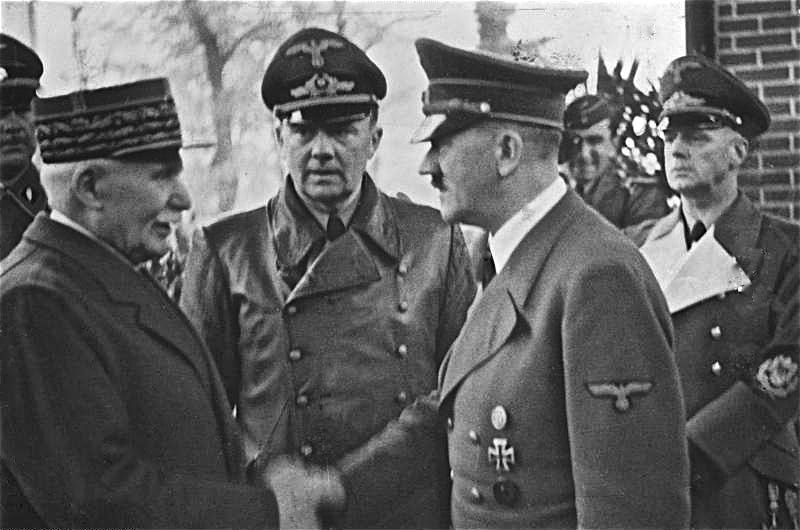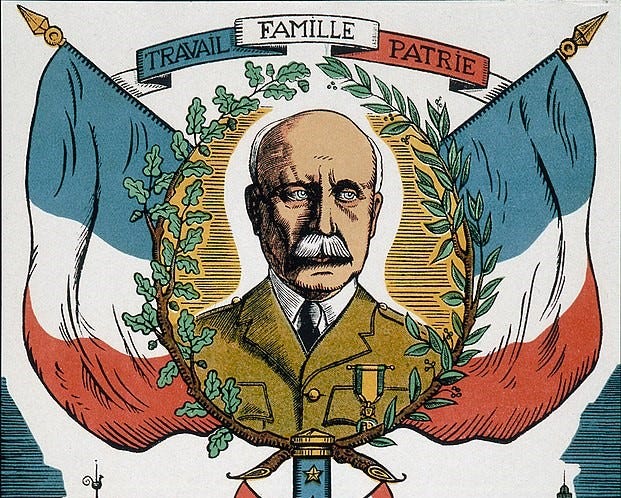Two generals stood in a familiar railway car and signed an agreement, marking the end of hostilities. The great power fought valiantly, but its defeat was swift and decisive. This week in time, France signed an armistice with Nazi Germany, ushering in a dark period in French history.

France Falls
When Hitler invaded in May 1940, France’s not-so-secret weapon was finally put to the test. Throughout the 1930s, the country constructed an elaborate fortification system called the Maginot Line. The system stretched 280 miles and consisted of anti-tank barriers, forts, underground bunkers, minefields, and other defense components aimed at preventing another German invasion. The line was an engineering feat, but it cost France more money than Britain and the U.S. spent on their naval fleets, combined.
It was probably the worst investment ever made. The Maginot Line ran along the France-German border, so the Germans simply went around the line by invading from Belgium (not sure how they missed that…). The French put up a good fight, but the Germans were victorious within six weeks.
New Sheriff in Town
During the onslaught, France’s prime minister appointed the (in)famous Philippe Pétain vice premier. Pétain was a hero to the French, famous for his role in the Battle of Verdun during World War I. He was appointed to boost the nation’s morale during the German assault, but he had different plans for the country. Without a chance for victory in sight, Pétain asked the Germans for an armistice.
Of course, an armistice is always signed on the winner’s terms. Hitler forced the French to sign the agreement in the exact same railway car that the Germans had signed their armistice in during World War I (so petty). But the location of the armistice was far more benign than its terms. The agreement split France into two zones: one zone occupied by Germany and the other a “free” zone. Germany took the meatier slice, occupying the north-western two-thirds of the country. The new French state was based out of the southern spa city of Vichy. Weeks after the armistice, parliament voted to dissolve the Third Republic and to give Pétain near-absolute power.
Vichy France
The armistice ushered in one of the darkest periods in French history (and that’s saying something). The Vichy state was not ‘free.’ Pétain established an authoritarian regime, adopting the motto “Work, Family, and Fatherland.” He called for an illiberal “National Revolution,” censoring the press, imprisoning critics, and rolling back other individual freedoms.
Keep reading with a 7-day free trial
Subscribe to WeekInTime to keep reading this post and get 7 days of free access to the full post archives.





